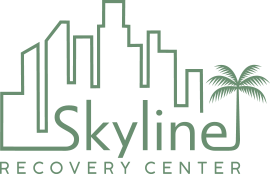Have you ever wondered, “Am I an alcoholic if I drink every night?” You are not alone. Alcohol is a widely used and accepted substance worldwide, so one may often become confused between social drinking and alcohol use disorder (alcoholism). While alcohol is indeed addictive, not everybody who drinks is an alcoholic. On the other hand, it does not always necessarily mean someone who is an alcoholic is on the verge of losing or has already lost control. In this article, we will learn to understand the signs of alcoholism and when it is the right time to seek professional help if you or a loved one is drinking too much.
Do You Always Grab a Nightcap? Time to Take a Step Back and Ask This Question
If you grab a drink every night – it may be an indicator of something deeper. Pause and ask yourself this question: Why do you drink every night? Do you drink to feel better, do you drink to forget, or do you drink to numb some kind of pain or struggle within? If your answer to any of these questions is yes, then it might be an indication that your nightcap can become something more severe and long-term.
Typically, in what is known as the pre-alcoholic stage, drinking is not as excessive. But this does not mean the signs of how it could turn excessive are not there. Therefore, delving into the above-mentioned questions is the first step to preventing heavy alcohol use.
What Are the Signs That Your Drinking Isn’t Harmless?
The Centers for Disease Control and Prevention (CDC) says that moderate drinking is one or two drinks per day for males and one drink per day for females. Just for your information, a standard drink refers to 12 ounces of beer, 5 ounces of wine, and 1.5 ounces of distilled spirits, such as rum, vodka, and whiskey.
So, having one or two drinks in the night after a long, winding day is not exactly an indication that you are headed for trouble. However, drinking daily can also increase the risk of alcohol-related health complications.
So, how much alcohol is too much alcohol, and what are the signs and symptoms of alcohol use disorder? Typically, heavy drinking is defined as:
- 15 or more drinks per week for males.
- 8 or more drinks per week for females.
Furthermore, here are some of the major signs of an alcohol use disorder, as suggested by the Diagnostic and Statistical Manual of Mental Disorders (DSM-5-TR):
- Strong cravings and urges to use alcohol.
- Drinking more frequently and heavily than you intended.
- Prioritizing alcohol use over everything else in life, including education, job, family and other relationships.
- Spending a lot of time acquiring and using alcohol.
- Concealing or lying about your drinking behaviors.
- Using alcohol despite the ill effects on physical and mental health.
- Using alcohol in high-risk circumstances, such as driving or operating heavy machinery.
- Attempts to cut down alcohol use, albeit unsuccessfully.
- Developing tolerance – which refers to needing more quantities of alcohol to achieve the desired effect.
- Experiencing withdrawal symptoms, which refer to highly unpleasant symptoms you experience in the case of reducing or stopping alcohol intake abruptly.
Not Just a Slippery Slope – What Does Alcohol Dependence Look Like?
Alcohol use disorder can often be mistaken for a moral failing of just not having the willpower to stop drinking. However, this is very far from the truth. Alcohol use can change your brain chemistry and functioning to the point that your mind and body do not just crave alcohol, they feel that they need it to function properly – to feel normal. This is what is known as alcohol dependence.
When you drink heavily, your brain gets used to the presence of a certain level of alcohol in the body. So, the central nervous system (CNS) works overtime (so to speak) to keep the body awake and functioning. If you suddenly stop alcohol intake, the CNS cannot adapt as quickly to its absence. It goes into an overdrive, and this is when you experience discomforting withdrawal symptoms that can also turn life-threatening:
- Irritability
- Anxiety
- Mood swings
- Depression
- Nightmares
- Sweating
- Vomiting
- Fever
- Appetite loss
- Increased heart rate
- Tremors
- Delirium tremens – characterized by fever, confusion, psychosis, and seizures.
Alcohol withdrawal symptoms are among the primary reasons why going cold turkey becomes dangerous. It is also why quitting alcohol on your own often leads to relapse, but you do not have to do this on your own. On the other side of alcohol use disorder is recovery, and you have some of the best alcohol addiction treatment options right near you.
How to Begin Your Nightly Escape from Alcohol?
Medical Detox – Detox is typically the first step to recovery from alcohol use; however, it is recommended based on the severity of your use and withdrawal symptoms. Medical detox is performed under medically supervised conditions, wherein alcohol levels are gradually tapered off from your body so as to minimize and manage cravings and withdrawal symptoms.
Psychotherapy – Sobriety does not come only with detox; you need to get to the bottom of your alcohol use to uncover and change the thinking, emotional, and behavioral patterns leading to the same. For this, you will collaborate with licensed and trained mental health practitioners who will use psychotherapeutic interventions such as motivational interviewing, cognitive behavioral therapy, contingency management, and 12-step recovery models for a lasting recovery.
Medication Management – You will be prescribed medications such as disulfiram and naloxone to discourage alcohol use and reduce the risk of relapse.
Aftercare – Even after you have completed your recovery program, you need ongoing structure and support in the form of supportive counseling, medication management, relapse prevention, sober living, and peer support programs like Alcoholics Anonymous (AA) and SMART Recovery so as to maintain your recovery and make it last for a lifetime.
You Are Not Alone on This Road – Take the First Step to Stop Drinking Every Night
If you catch yourself wondering, “Am I an alcoholic if I drink every night?”, it can be a sign of something deeper. While one or two drinks a day are considered more or less safe, drinking regularly can easily become a long-term problem. When you feel your alcohol use has become more than just a habit, it is time to seek help – and help is just a call away. At Skyline Recovery, we offer leading outpatient rehab options such as partial hospitalization programs, intensive outpatient programs, standard outpatient treatment programs, and dual diagnosis programs specifically tailored to your recovery needs and goals.
Please do not hesitate to reach out to us at (310) 269-0038 to begin healing today!


